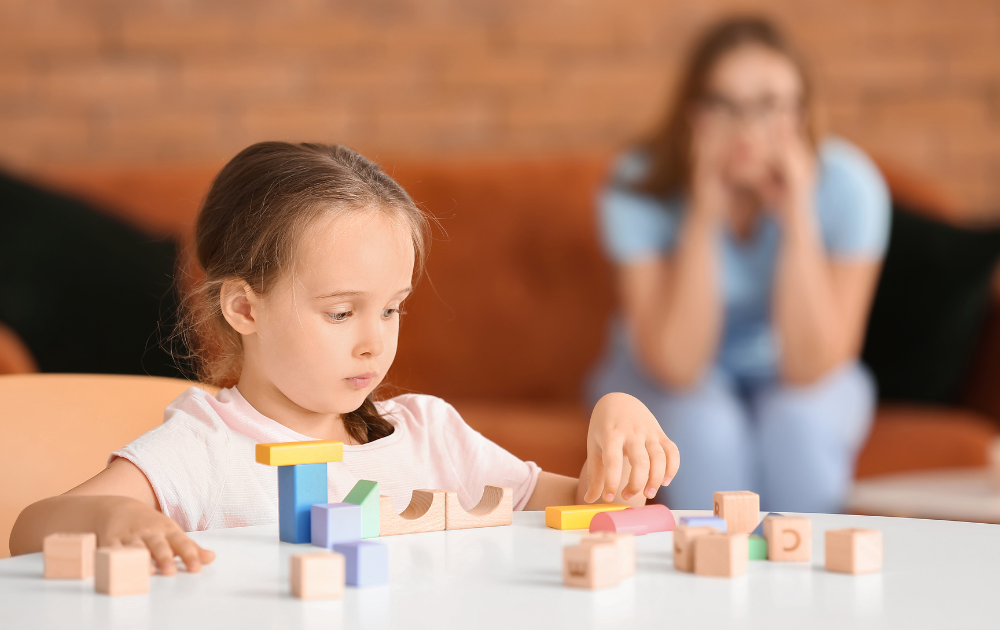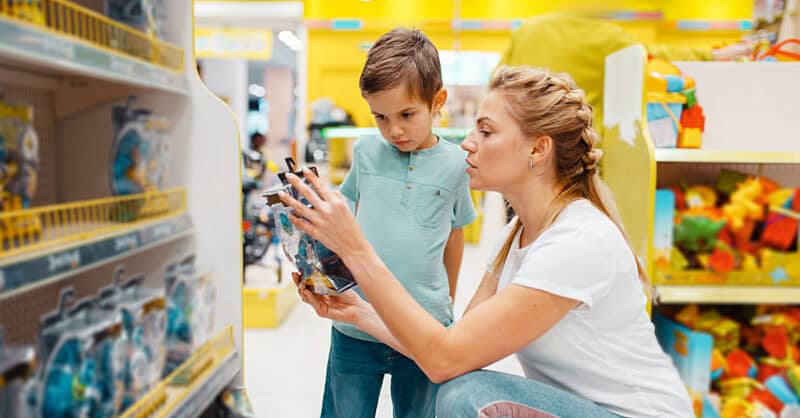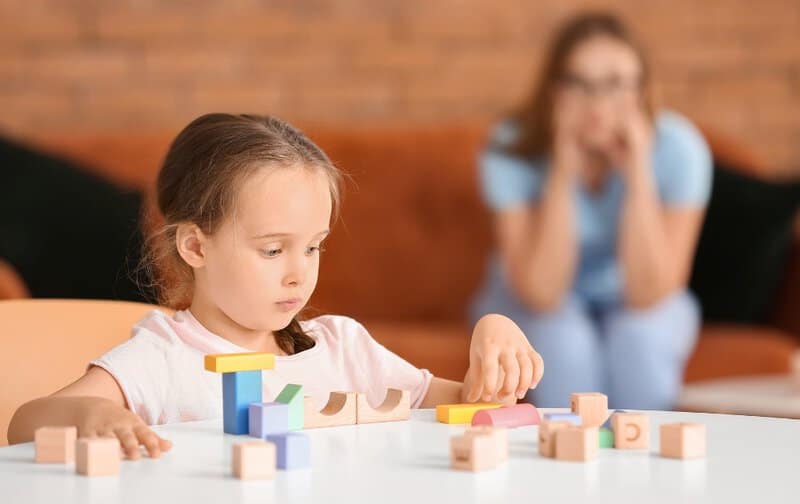Parenting advice has come a long way, but some old-school rules just won’t quit. While many of them were rooted in good intentions, we now know that some of these outdated approaches can actually create more stress, confusion, and disconnection at home. Letting go of them doesn’t mean letting kids run wild—it means parenting with more awareness, empathy, and flexibility. If your household feels harder than it needs to be, these long-standing parenting “truths” might be partly to blame. Here are 25 outdated parenting rules that may be doing more harm than good—and what to try instead for a calmer, happier home life.
Children Should Be Seen and Not Heard

This old rule discourages kids from expressing themselves, often teaching them to suppress thoughts and feelings. Encouraging open communication helps kids develop confidence and emotional intelligence. When children are allowed to voice their opinions, they feel respected and valued. It also fosters trust and builds a stronger parent-child bond. While respectful communication is key, silence shouldn’t be the default expectation. Instead of silencing them, teach appropriate ways to speak up. Letting kids share in conversations teaches them vital social skills. The home should be a place where all voices matter. Toss this rule and invite their voice into the conversation.
Good Parents Always Know Best

While parents have experience, they aren’t always right. This belief shuts down learning opportunities for both parties. Kids need to be heard and understood, not overridden. Open-minded parenting acknowledges that children bring valid perspectives. It’s okay to admit mistakes and grow together. Collaboration fosters respect and teamwork. Instead of asserting superiority, try curiosity. Learning alongside your child creates stronger connections. Sometimes, the best parenting move is saying, “I don’t know—let’s figure it out together.”
Boys Don’t Cry

This rule stifles emotional growth and enforces harmful gender norms. All children, regardless of gender, experience strong emotions. Telling boys not to cry teaches emotional suppression. Emotional expression is a sign of strength, not weakness. Boys need safe spaces to feel and be vulnerable. Teaching emotional regulation is healthier than forced stoicism. We want boys to grow into empathetic, emotionally aware men. Let them cry, talk, and feel freely. Feelings don’t have a gender—compassion doesn’t, either.
Girls Should Be Polite and Quiet

This outdated rule limits girls to a passive role in their own lives. Girls should be empowered to speak up, lead, and assert themselves. Teaching assertiveness helps build future confidence. Being “quiet” should not be a benchmark of femininity. Politeness is important, but so is agency. Encourage girls to challenge injustice and voice opinions. Empowerment starts at home with the freedom to speak. Raise bold, not silent, daughters. Confidence is a greater gift than compliance.
Children Must Always Obey Without Question

Blind obedience is not the goal—understanding is. Kids who are allowed to ask “why” learn critical thinking. Explaining rules helps them internalize values instead of just following orders. It fosters cooperation over control. Discipline rooted in respect creates deeper impact. Authority shouldn’t equal dictatorship. Encourage respectful dialogue and reasoning. Compliance without comprehension doesn’t teach morals. Say goodbye to unquestioned obedience and hello to mutual respect.
Praising Children Will Make Them Arrogant

Positive reinforcement is crucial for self-esteem. Fear of “spoiling” often leads to under-praising. But authentic, effort-based praise builds confidence. Kids thrive when their hard work is recognized. Praise teaches what behaviors are valued. It also deepens motivation and resilience. There’s a difference between encouragement and empty flattery. Focus on progress, not just results. Celebrate their wins—big and small.
One-Size-Fits-All Parenting Works

Every child is unique, so parenting must adapt. What works for one kid may not work for another. A rigid approach ignores individual temperament and needs. Flexibility is essential in raising well-adjusted children. Tailor your strategies to each child’s personality. Respect their differences and strengths. Parenting is not a formula—it’s a relationship. Be willing to adjust and learn. Personalization beats perfection.
Kids Should Finish All the Food on Their Plate

This rule disconnects children from their hunger cues. Forcing them to overeat can lead to unhealthy habits later. It ignores the natural ability to self-regulate. Instead, offer balanced meals and let them decide how much to eat. Mealtime should not be a power struggle. Teach mindful eating, not guilt-based consumption. Trusting their instincts supports a healthy relationship with food. Say goodbye to the clean plate club. Respect their appetite and boundaries.
Punishment Teaches Right from Wrong

Punishment may control behavior temporarily, but it doesn’t teach better choices. Discipline should educate, not shame. Natural consequences are more impactful than fear. When kids understand why something is wrong, they learn empathy and accountability. Punishment often breeds resentment and rebellion. Connection-based discipline fosters growth. Use mistakes as learning opportunities. Guide them, don’t scare them. Let go of punishment and embrace guidance.
Children Should Be Independent from an Early Age

While independence is important, pushing too hard too early can lead to stress and insecurity. Kids need time to depend on others for emotional security before they can confidently stand on their own. Fostering interdependence teaches them healthy social skills. Over-emphasizing independence can cause anxiety, especially in younger children. Gradual independence, based on age and developmental stage, helps children feel safe while growing. Offer support when needed, but also allow for small steps toward independence. Building confidence comes through gradual experiences, not pressure. Independence isn’t a race; it’s a process. Encourage growth, not forced autonomy.
Don’t Let Kids Win

Constantly “letting” your child lose is more about adult pride than their learning. Losing gracefully is an important life skill, but winning every time isn’t beneficial. Competition can teach resilience, but it should come with emotional support. Encouraging kids to try again after failure builds confidence. Instead of always winning, create opportunities where everyone can feel like a winner. Praise effort over outcome. It’s more important that they learn persistence than perfection. Create an environment of healthy competition, where losing is just a step toward improvement. Teaching kindness during games is just as vital as playing to win.
Avoid Letting Children Make Decisions

Many parents believe that children making decisions is risky. However, small choices foster responsibility and confidence. Allowing kids to choose dinner or what to wear gives them a sense of agency. It helps them develop decision-making skills that will be essential throughout their lives. Of course, the decision must be age-appropriate, but limiting choices too much can lead to resentment. It teaches them to trust themselves. Involving children in family decisions helps them understand that their opinion matters. There’s power in making decisions, even if they are minor. Encourage choices to help them grow into capable adults.
Screen Time Is Always Harmful

Technology is an integral part of today’s world, and while moderation is important, screen time isn’t inherently bad. Educational apps and games can support cognitive development and learning. The key is balance and supervision. Create guidelines for appropriate screen use, but don’t vilify it completely. Kids need to develop digital literacy just as much as traditional literacy. Set boundaries that foster healthy screen time while ensuring they engage in other activities. It’s more about quality than quantity. Promote responsible usage, and be a role model in digital consumption. Technology is a tool, not an enemy.
You Must Discipline in the Heat of the Moment

Reacting immediately to misbehavior often leads to rash decisions. Instead, take a breath, calm down, and then address the behavior. This gives parents time to think of a measured response that encourages learning, rather than anger. When parents act impulsively, it can create a cycle of frustration and resentment. Kids will better understand consequences when they are explained thoughtfully. Taking a moment to reflect leads to better emotional regulation and more effective discipline. The heat of the moment often clouds judgment. Responding calmly teaches kids how to manage their own emotions. Pause before reacting, and your words will carry more weight.
Household Chores Are Not for Kids

The idea that children shouldn’t do chores is a missed opportunity to teach responsibility. Age-appropriate tasks build a sense of contribution and ownership. Kids who help out at home understand the value of hard work and teamwork. Chores also provide important life skills they will need later. Assigning chores doesn’t just ease the load for parents; it fosters independence. It teaches time management, cleanliness, and accountability. Rather than seeing chores as punishment, reframe them as opportunities to work together. The family unit thrives when everyone pitches in. Teaching kids early makes them better prepared for adulthood.
Strict Bedtimes Are Essential for Good Health

While sleep is crucial, rigid bedtimes that cause stress or power struggles aren’t necessary. Flexibility within a consistent routine is a healthier approach. Children should have a bedtime that meets their age and individual sleep needs, but enforcing it with military precision may create unnecessary tension. Negotiating bedtime can help kids feel more in control while still getting the rest they need. The goal is restful sleep, not a rigid schedule. Trust your child’s body to indicate when they are tired. Create a calming environment to promote better sleep hygiene. Instead of focusing solely on bedtime, look at the overall quality of their sleep.
Constant Supervision is Necessary for a Safe Home

Over-supervising kids can stifle their confidence and independence. Of course, safety is important, but excessive hovering often leads to anxiety. Allowing children to explore their environment safely encourages self-reliance. It teaches them to trust their judgment and navigate challenges. A healthy balance is key: be available for guidance, but allow space for them to figure things out. Kids need to learn how to make decisions on their own. The best way to keep them safe is to teach them how to be safe. Trust them to make good choices with your guidance. Freedom and responsibility can coexist when managed wisely.
Education Comes First, Fun Can Wait

This belief puts unnecessary pressure on kids and can undermine their natural curiosity. Learning doesn’t have to be rigid or work-like. Play and exploration are fundamental parts of a child’s development. Fun activities stimulate creativity, problem-solving, and social skills. When learning is enjoyable, children are more motivated. It’s about integrating play into daily life, not separating fun from education. Kids learn best when they’re actively engaged and interested. Let them be curious, explore, and experiment. Don’t underestimate the power of fun in fostering lifelong learning.
Children Must Be Well Behaved at All Times

This idea sets unrealistic expectations. Kids are learning how to navigate the world, and mistakes are part of the process. Expecting constant good behavior only adds unnecessary pressure. Children need the freedom to express themselves, including through tantrums or mischief. The goal isn’t perfection—it’s learning how to manage emotions and behavior over time. Fostering an environment where mistakes are allowed helps children feel less fear of failure. Teach self-regulation, not rigid compliance. Balance is key—sometimes they’ll misbehave, and that’s okay. Give them room to grow without expecting flawless behavior every moment.
Too Much Affection Will Spoil a Child

Hugging, cuddling, and showing love builds emotional security. There is no such thing as too much affection when it comes to your child’s emotional well-being. Loving gestures teach children that they are valued and safe. Physical affection can also help regulate stress and anxiety. Studies have shown that affectionate parenting supports emotional health and social development. Holding back affection out of fear of spoiling them may leave them feeling disconnected. Kids who feel loved are more likely to thrive emotionally and socially. Never underestimate the power of a hug, a kiss, or a simple “I love you.” Affection is a foundational part of strong parenting.
Boys Should Be Tough, Girls Should Be Gentle

Enforcing these gendered roles limits children and teaches stereotypes. Boys can be gentle, and girls can be strong. Instead of promoting restrictive roles, encourage your children to explore all the qualities that make them unique. Support them in being empathetic, kind, and assertive, regardless of gender. Toughness and gentleness are both valuable traits that should be available to every child. Embrace all of their characteristics, from sensitive to strong. Celebrate each child’s individuality, rather than trying to mold them into predetermined roles. By letting kids define their identity, we empower them to be fully themselves. Challenge stereotypes, and nurture a full range of emotional and social traits.
Parents Should Protect Children from All Discomfort

Shielding kids from any difficulty or discomfort doesn’t help them develop resilience. Learning how to cope with challenges is an essential life skill. Kids need to face failure, loss, and frustration in a supportive environment to build emotional strength. It’s about striking a balance between offering comfort and allowing them the space to figure things out. When parents constantly swoop in, children miss out on opportunities to learn perseverance. Rather than rescuing them, guide them through challenges so they learn how to handle adversity. Struggle, when appropriately managed, can build grit. Show your kids that setbacks don’t mean failure—they’re part of growth. Embrace discomfort as a chance for learning and development.
Don’t Let Kids Get Bored—Entertain Them

While it’s tempting to constantly entertain children, boredom is actually an opportunity for creativity. When kids have to entertain themselves, they engage their imagination and problem-solving skills. Boredom is a natural part of childhood development that encourages self-sufficiency. It’s important to let them explore boredom before stepping in with distractions. Having too many scheduled activities can limit their ability to learn independence. Unstructured time is valuable for personal growth. Sometimes, the best thing you can do for your child is to let them figure out what to do with themselves. Encouraging independence in boredom leads to a greater sense of accomplishment and creativity. Instead of fearing boredom, embrace it as a chance for your child to grow.
Rewarding with Material Items Is the Best Way to Encourage Good Behavior

While rewards can be motivating, relying on material gifts undermines intrinsic motivation. Kids should learn the value of doing good for the sake of personal growth, not for a tangible reward. Praise effort and behavior over items. Material rewards can also lead to entitlement and a sense of dependency. Instead, focus on recognizing accomplishments with praise, quality time, or privileges. Encourage your child to take pride in their achievements without expecting something in return. It’s about reinforcing that personal satisfaction and self-respect are the best rewards. Non-material rewards foster healthier, long-lasting motivation. Encourage your kids to be proud of themselves, not just their possessions.
Your Child’s Success Reflects Your Parenting

This rule ties a parent’s identity too closely to their child’s achievements. While parents naturally care about their children’s success, it’s important to remember that children are individuals with their own paths to follow. Kids will succeed and fail in their own time, regardless of how much effort parents put in. Parents should focus on creating a nurturing environment where their children feel supported, not pressured. The ultimate goal is for children to develop into independent, self-aware adults, not to meet parental expectations. Letting go of this expectation helps reduce anxiety and stress for both the parent and child. Success isn’t a reflection of parenting—it’s a part of the child’s personal journey. Embrace the ups and downs of your child’s life, and be there for them through it all. Celebrate their growth, not just their achievements.

